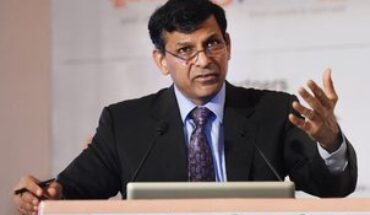The government has proposed to bring changes in IT rules to curb misuse of social media and online platforms, but the opposition termed the move as violation of privacy of individuals and an attempt to convert India into a “nanny state”.
The IT Ministry released draft amendments which suggest social media and online platforms would need to enable tracing of originators of information when required by government agencies which are legally authorised, media reports said.
“The intermediary shall enable tracing out of such originator of information on its platform as may be required by government agencies who are legally authorised,” a PTI report quote the proposed amendment as saying.
“The intermediary (social media platform) shall deploy technology-based automated tools or appropriate mechanisms, with appropriate controls for proactively identifying and removing or disabling public access to unlawful information or content,” the draft amendment reportedly said.
The opposition charged the government of “violating” the privacy of individuals and converting India into a “nanny state” through these amendments.
The Congress reportedly said if these amendments were cleared, there would be a tremendous expansion in the power of the “big brother” government on ordinary citizens, “reminiscent of eerie dictatorships”.
Experts also warned that amendments, which would allow traceability of “unlawful content”, invade personal privacy and free speech.
Cyberlaw expert Pavan Duggal said that some of the changes planned are akin to India’s own anti-encryption law. The proposed changes in rules will place social media platforms – even those like WhatsApp which promise users privacy and encryption – firmly under government lens, requiring them to deploy tools to “identify” and curb unlawful content, while following stricter due-diligence practices, the report said.
Traceability of originators of content had been a long-standing demand of the government, ever since rumours circulated on WhatsApp incited cases of mob-lynching. The messaging platform itself has, so far, resisted identification of originators of rogue messages citing user privacy and encryption, it added.
The amendments, which come ahead of the general polls next year, propose that platforms would also have to inform users to refrain from hosting, uploading or sharing any content that is blasphemous, obscene, defamatory, “hateful or racially, ethnically objectionable”.
Users would be asked to guard against hosting or sharing information that violates any law, deceives or misleads receivers about the origin of messages that are grossly offensive or menacing in nature, or those which threaten national security, the PTI report pointed out.
It says that intermediary — after a court order is communicated or being alerted by a government agency — will have to remove or disable access “as far as possible immediately, but in no case later than 24 hours”.
“When required by lawful order, the intermediary shall within 72 hours of communication, provide such information or assistance as asked for by any government agency or assistance concerning security of state or cybersecurity…” says that draft. These internet companies will have to preserve relevant records for 180 days for investigation purposes or longer periods, if required.
In a statement, the IT Ministry asserted that the government does not regulate content appearing on social network platforms, but these companies are required to ensure that their platforms are not used to commit and provoke terrorism, extremism, violence and crime. The ministry also cited recent instances of misuse of social media by criminals and anti-national elements that have brought new challenges to law enforcement agencies.
Govt proposes changes in IT rules to curb misuse of online platforms
Published Date: 25-12-2018 | 3:43 am




